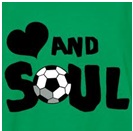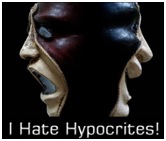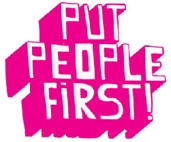|
 |
|
 |
|
|
||
Apocalypse Now - War and Ethics
Apocalypse Now (1979)
Famous for... Showing the horror and moral dilemmas of the Vietnam War (1959-75) between:
56,000 Americans and at least 750,000 North Vietnamese were killed.
Set in... 1968 when 40,000 young Americans were conscripted every month.
Other famous Vietnam films...
Director Francis Ford Coppola (also director of The Godfather movies)
Oscars Two (best cinematography and best sound) Key characters Captain Benjamin Willard (Martin Sheen), special forces assassin (pictured right) . Colonel Walter Kurtz (Marlon Brando), brilliant but evil army officer. Lieutenant Colonel Bill Kilgore (Robert Duvall), commander of the Ninth Air Cavalry
The story It is 1968 in Saigon, the capital of South Vietnam. Captain Benjamin Willard is:
Kurtz (Marlon Brando, pictured right) is charged with murdering four Vietnamese double agents. Willard goes up river to Cambodia in a river patrol boat, whose crew consists of:
They are escorted by the Ninth Air Cavalry, led by Lieutenant Colonel Bill Kilgare, which:
Then some jets drop the devastating fire bomb, nepalm. Chef’s craving for mangoes results in him and Willard exploring the jungle to find some. They flee back to the boat after being lunged at by a tiger, giving Chef a nervous breakdown. Further up river, the boat crew join a sexy army cabaret show by three Playboy Playmates. It has to be abandoned (and the girls evacuated), when some soldiers run onto the stage in a sexual frenzy. Chief (Albert Hall, pictured right) :
She makes a sudden move towards it, prompting Clean to panic and kill all the civilians except her. Chef looks inside the can and finds only a small puppy. Chief promises the woman they will take her to a hospital nearby, but Willard kills her, so that his mission can proceed without delay. Horrified by this murder, the crew continue their journey to near the Cambodian border. The Viet Cong:
(Clean, Laurence Fishburne, is pictured right) Then Chief is also killed in an arrow attack by primitive natives. They finally arrive at Kurtz’s camp, strewn with dead bodies and severed heads. Lance and Willard:
The natives (under Kurtz’s control) drag Willard through the mud to Kurtz who imprisons him in a small tiger cage. During the night, Kurtz throws Chef’s severed head into the lap of Willard who is freed the next day. For several days Willard:
Eventually Willard:
Kurtz’s last dying words (“The horror! The horror!”, pictured right) are repeated as the film ends.
Lessons on war and ethics 1. Life is a battle between good and evil War has turned Kurtz, Willard and Kilgare (Robert Duvall, pictured right) into dehumanized killing machines. However, Willard’s refusal to replace Kurtz as the natives’ leader shows that he still has some goodness left in him. Kurtz welcomes him, because he sees death as the only escape from his all consuming wickedness. Willard observes that the troops are:
2. Character must accompany charisma and
competence Kurtz is a charismatic and ruthlessly effective leader, but his evil leads to his downfall. He writes to his son that leadership in war is a mixture of:
3. Hypocrisy is horrible The American army demonizes Kurtz, even though his atrocities are no worse than its own. Kurtz:
Willard also observes that the war kills and maims the people of Vietnam in the name of helping it. “We would cut them in half with a machine gun and give them a Band Aid”, he says.
4. War is horrific The horrors of war are evident throughout the whole film The murder of Vietnamese civilians is particularly horrific (like the lady with the puppy). Kurtz is traumatized by the enemy cutting off some children's arms that had been inoculated against polio. Despite admiring him, Willard knows he must carry out his orders and kill him. 5. Speed isn’t always sacrosanct People must come before time management. This is shown when Willard callously kills the woman with the puppy, so that he won’t be delayed by taking her to hospital.
6. Family comes first The boat crew yearn for their families, and Clean is killed listening to a letter from his
mother. Kurtz loves his son, although his marriage and family (like Willard’s) are destroyed by the war. This led Willard to observe that: “I'd never seen a man so broken up, ripped apart”. Kurtz asks Willard to honestly tell his son about everything he's done, so that he can understand him better.
Key quotes on war and ethics I love the smell of napalm in the morning, Kilgare. The horror! The horror!, Kurtz’s dying words. Terminate with extreme prejudice, Willard's order to kill Kurtz (from a civilian, probably a CIA agent). Because it's judgement that defeats us, Kurtz (on needing men who can kill without judgement). There is nothing that I detest more than the stench of lies, Kurtz
Key quote on happiness Do you know that 'if' is the middle word in life?, Photojournalist
Two film websites to recommend 1. filmsite.org (run by Tim Dirks). 2. aveleyman.com (run by Tony Sullivan) |
|
|
||
|
|
||
| Copyright © wisdomtowin.com 2025 All Rights Reserved | ||
|















